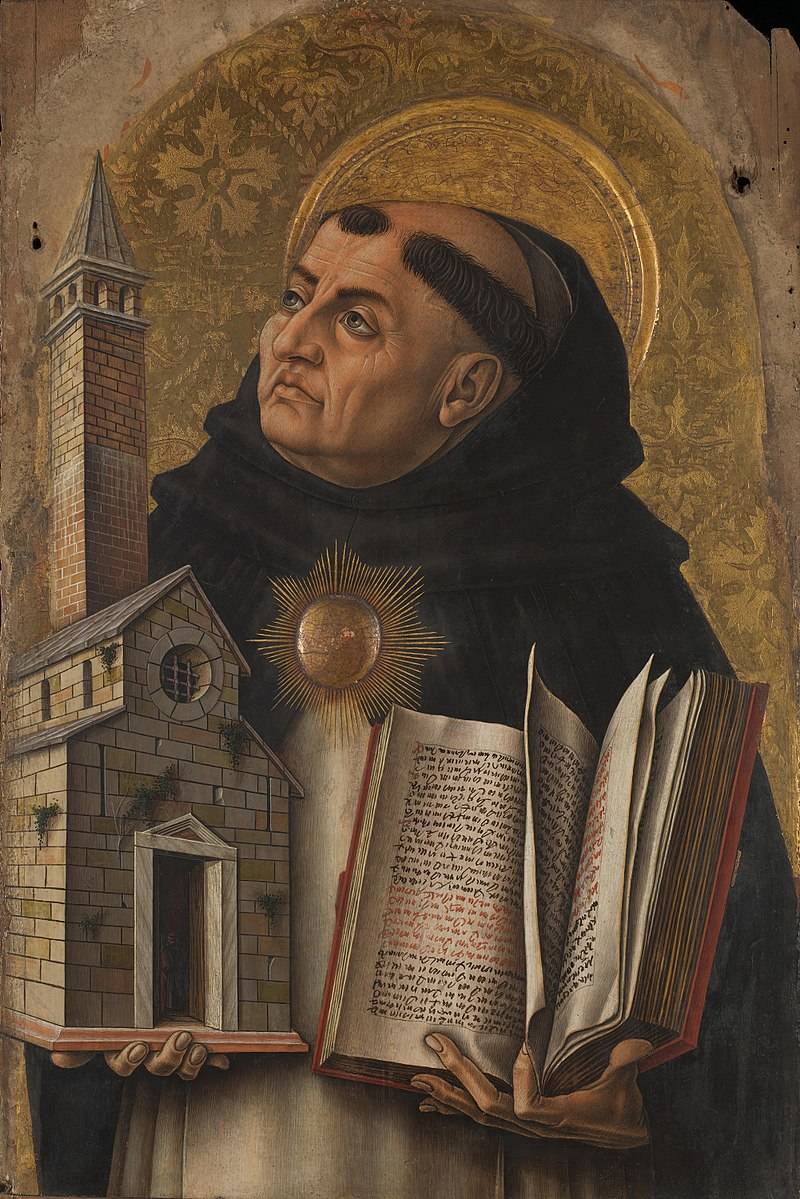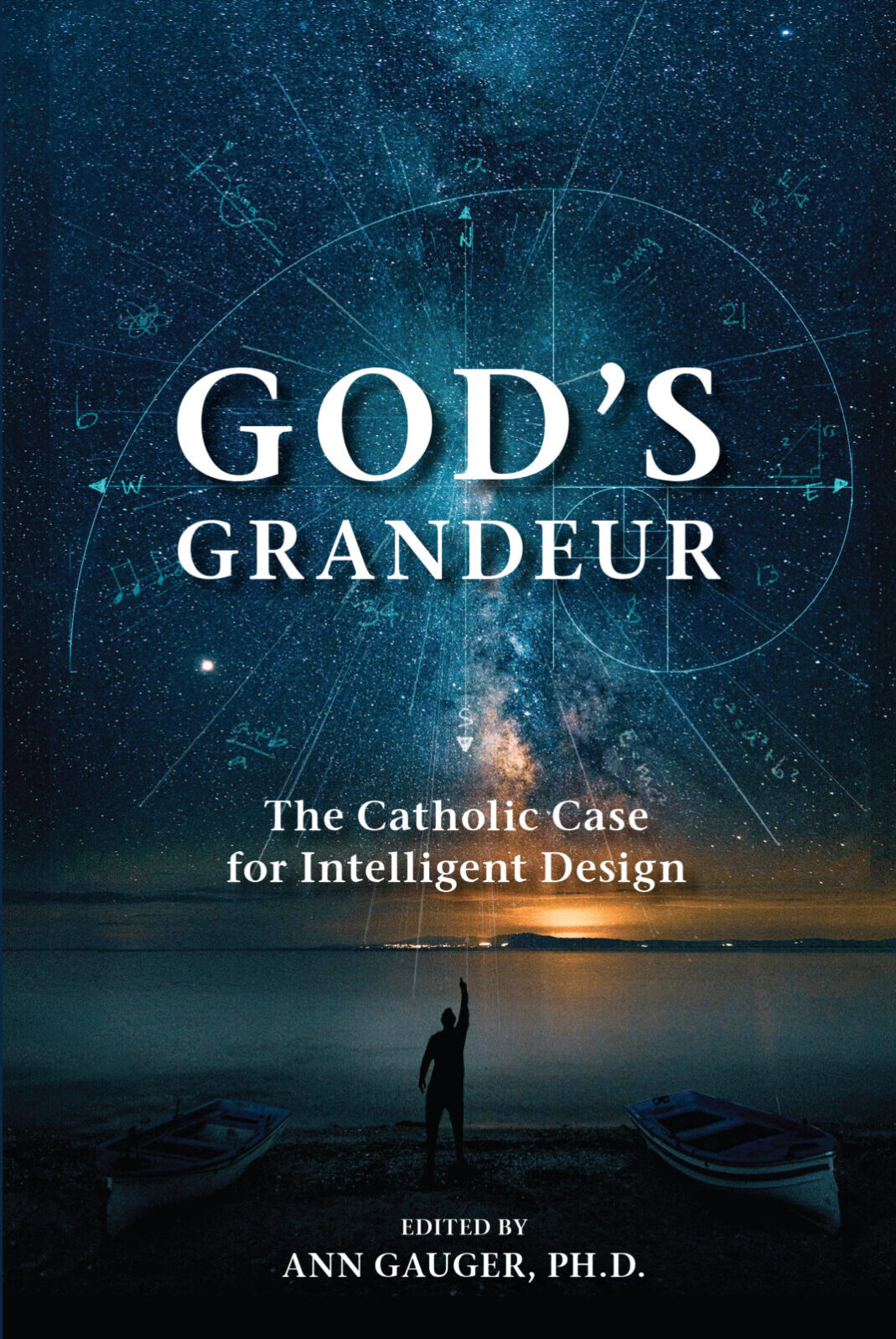New Book Looks at Design in Nature From a Catholic Viewpoint
Catholic thinkers who reject Darwinism don’t focus so much on its claims about universal common descent as on its utter inability to account coherently for the human mindPopular lore, misleading as it so often is, holds that Catholics are “okay with evolution.” Some are, to be sure. But few observant Catholics believe that human beings naturally evolved from the slime without any divine initiative.

The great philosopher and theologian Thomas Aquinas (1225–1274) offered five proofs of the existence of God. The fifth one was:
The Argument from Design: All things have an order or arrangement that leads them to a particular goal. Because the order of the universe cannot be the result of chance, design and purpose must be at work. This implies divine intelligence on the part of the designer. This is God.
“Aquinas’s Five Proofs for the Existence of God.” In The Catholic Faith Handbook for Youth, Teacher Guide. © 2011 by Saint Mary’s Press.
Note that this proof is not based on Scripture or personal experience. It is an appeal to reason.
Prominent Catholics tackled Darwinism in the early years of its spread. G.K. Chesterton (1874–1936), a formidable Catholic Christian apologist, wrote The Everlasting Man (1925) to argue against Darwinism and the Darwinian view of the human being: “Man is not merely an evolution but rather a revolution…If we attempt to regard him, as it were, as a quadruped standing on his hind legs, we shall find what follows far more fantastic and subversive than if he were standing on his head.” Similarly, Hilaire Belloc (1870–1953), a fellow defender of Catholicism and Christianity, wrote a series of works disputing Darwinism with H. G. Wells (1866–1946).
It was only in recent decades that we began to hear about “Catholic” evolutionism, which took root despite the fact that Darwin’s universal acid eats up Catholicism, along with every other meaningful concept in human life.

This summer, biologist Ann Gauger and colleagues published a book, God’s Grandeur (Discovery Institute Press, 2023), on a theme propounded by Pope Benedict XVI, “We are not some casual and meaningless product of evolution. Each of us is the result of a thought of God. Each of us is willed, each of us is loved, each of us is necessary.”
It includes chapters by: Lehigh University biochemist Michael Behe; award-winning brain surgeon Michael Egnor; noted theologian John Bergsma, Fr LC, Rector of the European University in Rome Pedro Barrajón, LC; Jay Richards, co-author of The Privileged Planet and editor of God and Evolution; Fr. Michael Chaberek, author of Aquinas and Evolution; Benjamin Wiker, Director of Human Life Studies at Franciscan University of Steubenville; philosopher J. Budziszewski, an authority on Thomas Aquinas; Bruce Chapman, founder and chairman of Discovery Institute; and Anthony Esolen, translator of Dante’s Divine Comedy and other books.
I was particularly interested to read philosopher Scott Ventureyra’s Chapter 10, “The Distinctiveness of the Human Person.” The denial of human exceptionality is Darwinism’s key claim. One primatologist puts it like this: “With Darwinian theory, this idea that we were special because God created us specially had to be put aside.” Yet it is blindingly obvious that we study the apes and they do not study us. That matters.
Why we are nobler than other life forms
Ventureyra points out that, paradoxically, our weakness and capacity for sin makes us nobler than the countless life forms that cannot sin because they do not have moral choice: “It is part of our existential plight to be painfully self-aware of our vulnerabilities, our inadequacies, our capacity for sin, and our finitude; and yet this affliction makes us nobler than the universe and all other finite beings … we can learn to master our internal mental life; this, if anything, is testament to our distinctiveness as rational beings within the known universe.”
He quotes the great Catholic philosopher and physicist Blaise Pascal (1623–1662): “All our dignity consists, then, in thought. By it we must elevate ourselves, and not by space and time which we cannot fill. Let us endeavour, then, to think well; this is the principle of morality.”
Ventureyra makes a critical distinction between being capable of reason in principle and exercising reason. Some humans don’t exercise abstract reason because they are prevented by immaturity or a cognitive impairment. But they are capable of it in principle. A mature healthy gorilla will not exercise abstract reason because he is not capable of it in principle.
He also offers some interesting thoughts on the way the human hand (which is unique in some ways) is extraordinarily well adapted to the human mind.
There is, of course, no evolutionary history of the human mind; we suddenly encounter it in the depths of vast antiquity — in ochre patterns of handprints on ancient cave walls or burial rituals that suggest the hope of rising again. About minds and hands, Ventureyra says, “The combination of natural law and chance, or natural selection acting on random mutations could not co-ordinate this ideal match. This is not to preclude the possibility of universal common descent, but to affirm that evolution must be teleological to accomplish such efficient and organized structural designs.”
That last observation captures a typical Catholic approach: Catholic dissent from Darwinism has tended to focus more on the uniqueness of humans than on doubts about common descent as such. Obviously, if theorists can’t Darwinize the mind, evolution can’t be a Universal Acid. But no one needs a degree in biology to see that.
You may also wish to read: When did humans first start burying the dead? One of the things paleontologists look for is special care taken in the placement of the deceased’s body. How could the insight that the human mind is not material and cannot really die the way the body dies get started? Did it always exist?
